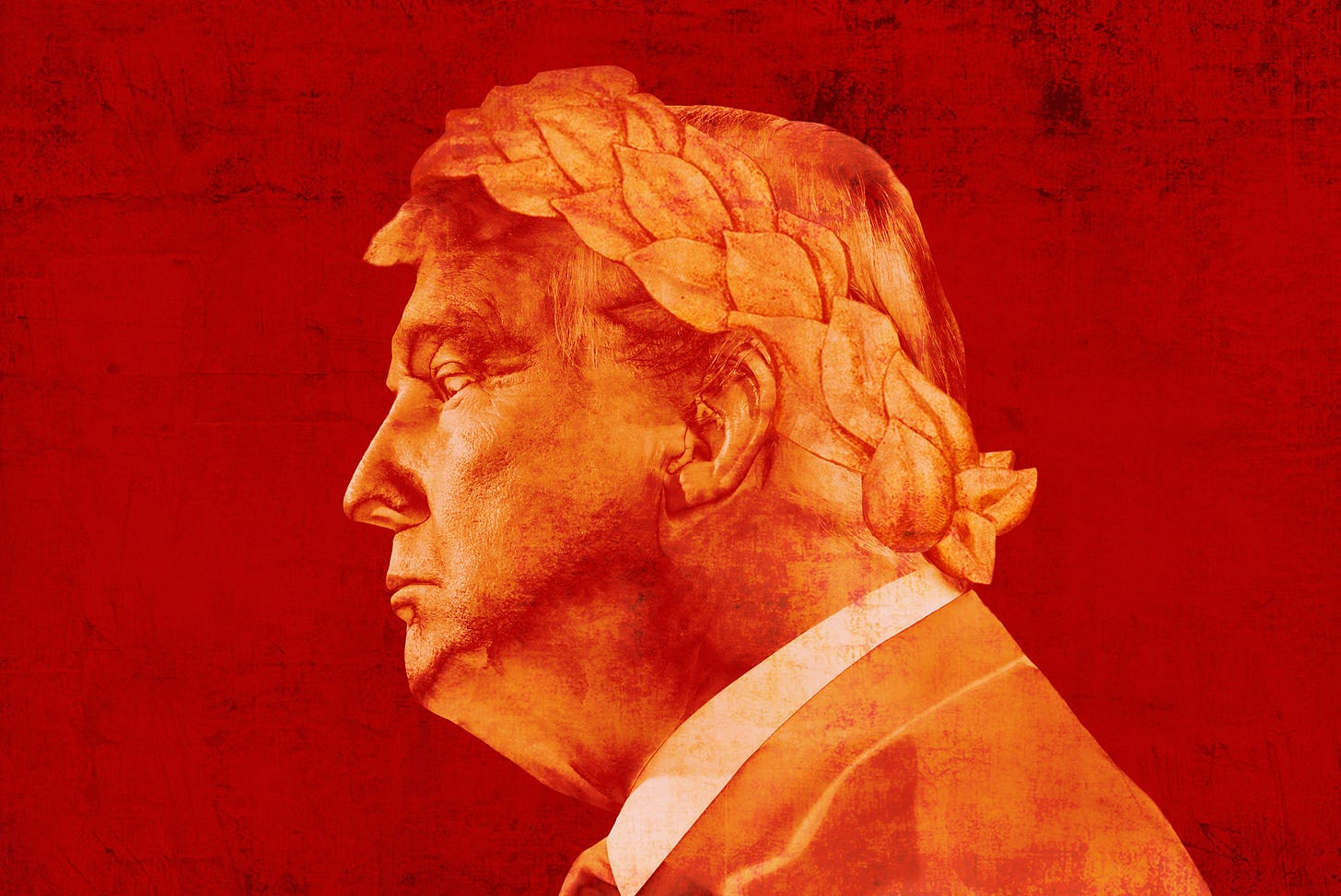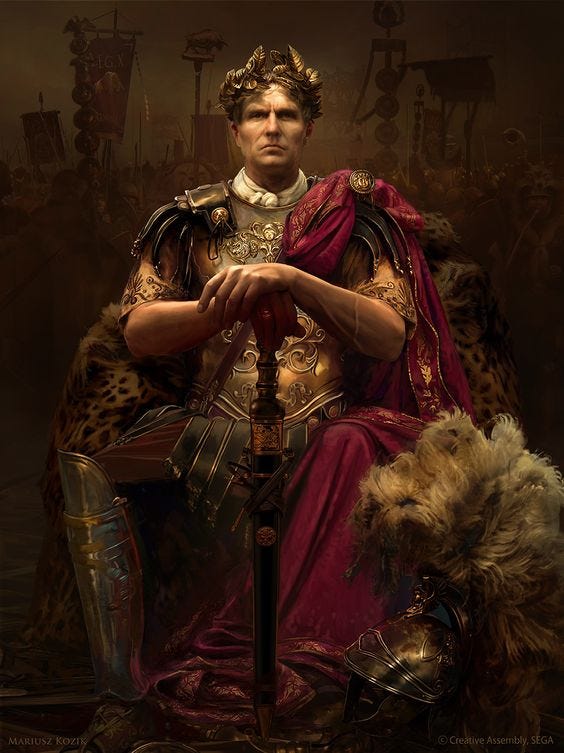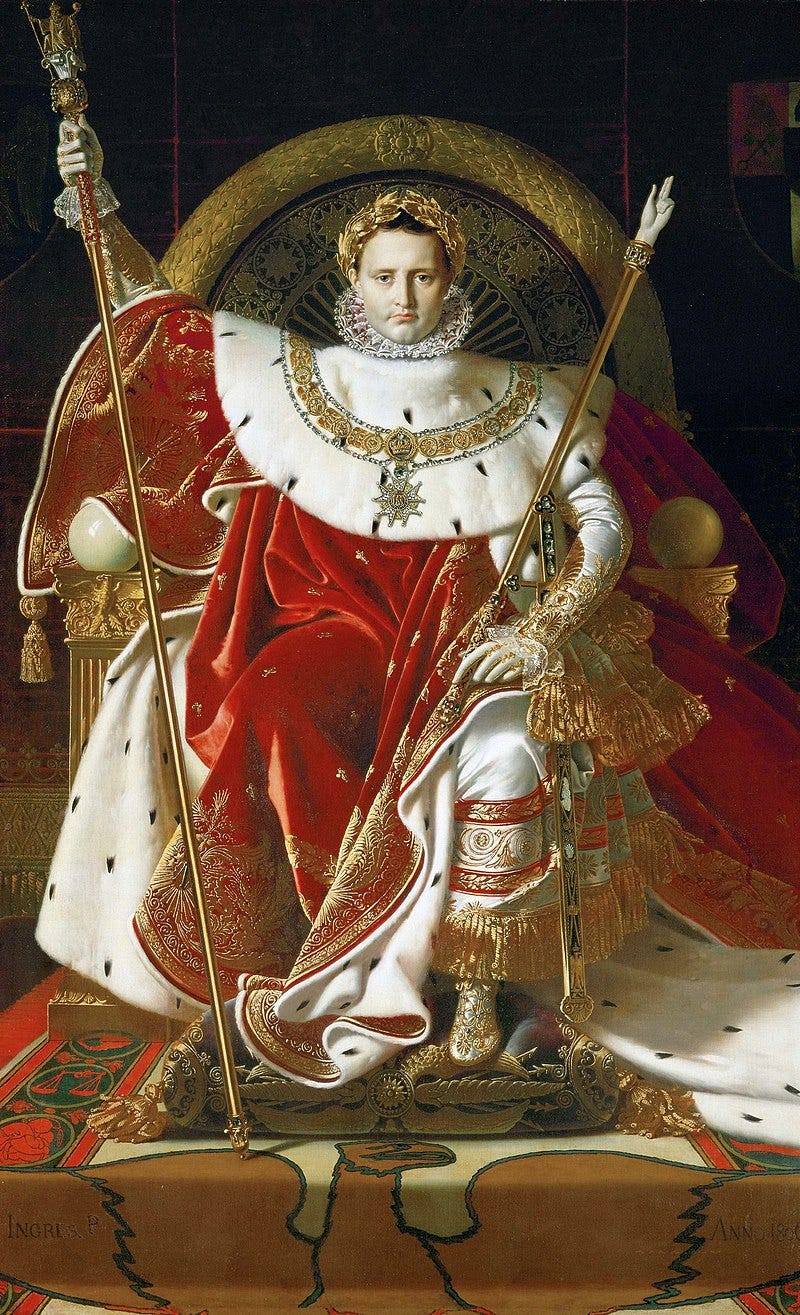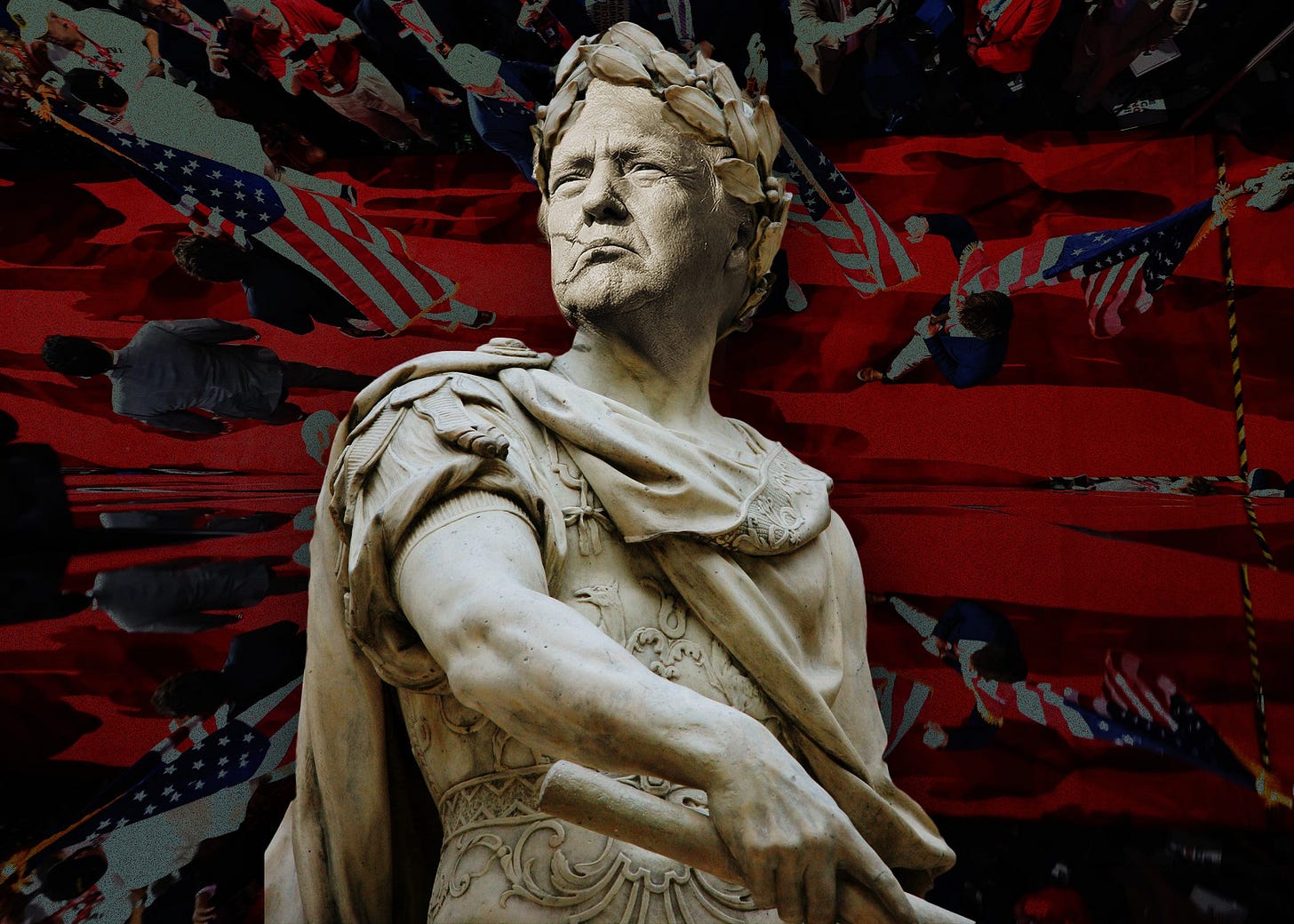The following is an excerpt from my contribution with the Philosophical Journal of Conflict and Violence (2023).
What form will the Western Caesarism take? A glance at Spengler’s Hour of Decision and Prussianism and Socialism sheds further light on this point. Firstly, Spengler’s concept of Prussian, or modern, socialism should not be mistaken for Marxist socialism. It is, however, a product that arose alongside Marxism, albeit possessing more right-leaning views; an instinct that nurtures the Faustian temperaments of will to power and yearning for the infinite, yet in modern times it has turned into the will to “absolute domination of the world in the military, economic and intellectual sense.” This instinct was perhaps drastically felt during the First World War and is manifested in the Western form of Imperialism. Whilst other world cultures did pursue conquest in their own respective manner, the Faustian soul recognizes no limit, and thus obsesses with world domination as embodied by the conquest of the Americas and of large swathes of lands globally. Thus, the ambition to universal domination is technically “modern socialism,” and it is, ipso facto — the drive towards globalization in every sense. Although an antithesis might always exist, as evident in all cultures, the Caesarism that is to come, according to Spengler, will forcibly combine any conflicting sentiments, just as “Caesar combined senate and plebs.” Spengler introduces the idea that there are two distinctly Faustian economic principles at a war of annihilation: on one hand, the English Viking evolved into a free tradesman embodied economically by capitalism; on the other, the German Teutonic Knight progressed to an administrative official symbolized by Prussian socialism. Spengler questions whether the economic structure of the future Caesarism will be through “worldwide exploitation, or worldwide organization,” and asks “are the Caesars of the coming empire to be billionaires or universal administrators?” Although, in The Decline of the West, Spengler suggested that the coming Caesars of the Western world hold ideals that are antithetical to capitalism, in Prussianism and Socialism, Spengler seemed hesitant to assert that. This is revealed when he asked whether the Caesars would come in the form of “billionaires or generals, bankers or civil servants of the highest quality? That is the eternal question.” In this work, he believes that the dialectal clash between what he calls Anglo- Saxon capitalism and Prussian socialism will eventually decide the winner. Moreover, Spengler seems sure about another point regarding the battle for universal dominance: it will definitely be fought in blood. In a typically pessimistic tone, Spengler says:
Everything that proceeds from the innermost soul to become flesh or fleshly creation demands a sacrifice of flesh in return. Ideas that have become blood demand blood. War is the eternal pattern of higher human existence, and countries exist for war’s sake, they are signs of readiness for war. And even if a tired and blood-drained humanity desired to do away with war, like the citizens of Classical world during its final centuries, like the Indians and Chinese of today, it would merely exchange its role of war-wager for that of the object about and which others would wage war.
Although this projection was given almost a decade prior to the outbreak of the Second World War, and Spengler’s deteriorating health led to his unexpected death, one cannot dismiss the fact that the clash of Nazi National-Socialism, on the one hand, and the liberal democratic Anglo-American, on the other, resemble what Spengler envisioned in his works. Before his passing, Spengler accurately predicted the demise of the Third Reich, and went as far as critiquing the racial theories, anti-Semitism, and narrow ideological foundation employed by the Nazis, leading to the marginalization and banning of some of his works in Germany. Is it safe to conclude that Anglo-Saxon capitalism has fully defeated what Spengler termed “Prussian Socialism” following the fall of the Third Reich? Or is too early to assume the fulfilment of his predictions? While this is a topic for another paper, one could argue that the outcome of the Second World War has led to an Anglo-Saxon political, economic, and cultural global hegemony that is still evident today. War is a theme Spengler thoroughly employs alongside his discussion of Caesarism in all of his works. Spengler provides a somewhat more confident assessment in The Hour of Decision. Perhaps this change in tone is the result of the drastic change in the European geopolitical, socio-political, and economic landscape, which Spengler had witnessed in the decade between publishing The Decline of the West (1918) and Prussianism and Socialism (1919), and the late Hour of Decision (1933). In the latter, he suggested that the true Caesarism of all cultures always takes hold and emerges within “the small, strong minorities.” Here he also reasserts the idea that the Western form of Caesarism replaces a paid professional army, that belongs to the money-age period, with mercenaries and volunteer peasant armies, such as the transition in the Classical world following the Marian reforms of the Roman army — paving the way for “instinctive revolt of the blood” against “the forces of money and intellect.” Consequently, at the point of virtual extinction, an ageing society rises through proletarian Caesarism, which ends both “the Gracchian and Catilinarian tendencies.” Spengler argued that the impending Caesarism would only take hold when majorities are despised — when party-politics, programs, and ideologies are looked down upon — this includes both Fascist and Marxist tendencies.
Spengler introduces the concept of “Napoleonism,” a stage of the evolutionary process that transitions every culture into Caesarism. In the Chinese culture, the counterpart of Napoleonism is the period of contending states, from 480 to 130 BC roughly, corresponding to the Greco-Roman 300-50 BC; these periods correspond to the 19th and 20th centuries in the history of the West. The period of contending or warring states, as the name implies, consists of a series of total global wars and revolutions between several powerful states of the respective culture. Concerning this era, Spengler says “No era confronts its mankind so distinctly with alternative of great form or great individual powers as this period of contending states.” The collective political condition of nations deteriorates, and thus opens up the path for energetic and Machiavellian private individuals to take hold of the destiny of whole nations and cultures. Spengler terms this “the accident of great fact-men”; their rise allows a fragile nation to rise to the peak of the geopolitical arena almost instantaneously, as exemplified by the case of Macedonia and Alexander the Great. On the other hand, their accidental death, as in Julius Caesar’s case, plummets a secured world into pandemonium. The transition from culture into civilization, or end-culture, and its Napoleonism, commenced during the emergence of Napoleon and climaxed during the First World War; in the Classical world, it began when Hannibal challenged Rome and sparked the Punic Wars. In the Arabo-Persian Islamic or Magian civilization, correspondingly, the transition from Napoleonism to Caesarism appeared in a different form, yet still exhibited the same characteristics, as the Caliphate gradually transformed from the world-city of Baghdad into a Sultanate. As a culture is beginning to enter the state of historical formlessness, the era of the powerful individuals begins. During the transition period, the culture releases all its forces that have been previously buried to produce the respective form of the culture. Spengler argued that the transition from absolute state to the clash between nations, which marks the beginning of the period of contending states, is essentially the switch from a government in “the pulse and style of a strict tradition,” to a governmental form which perfectly epitomizes the Latin phrase sic volo, sic jubeo, or “Thus I will, thus I command” — a personal regime characterized by an extraconstitutional supremacy of the executive branch. The era preceding the formation and consolidation of Caesarism experiences revolutions, interstate and internal conflicts. Spengler believed that the revolutions of this period were historically of no importance, since he viewed them as predominately comprised of a blind megalopolitan mass who only accelerated the annihilation of the ancient forms in order to clear the path for the impending Caesarism. Militarily, this period is characterized by a return to nature — an inclination to rawer and ferocious forms — thus the methods and tactics became more savage and cruel, chivalry and rules of the past become irrelevant. This tendency first manifested itself in the West during the French Revolution and the rise of the Napoleonic armies, which brought the whole nation to the battlefield through conscription. In terms of technics, the civilizational era that Caesarism rises within leads to a technological revolution, as the culture races to press all mechanical possibilities, in accordance with the spirit of the times. In Man and Technics, Spengler explores the history and nature of technology and provides his speculation regarding the existential threat of Western technology and its correlation with an additional global catastrophic risk, namely, the ecological crisis. In the cultural phase, the technique of war is not prioritized over craftsmanship, but the start of the civilizational phase ushers an era of mechanization, due to the demands of military necessity. Thus, the result is more catastrophic wars, albeit it “renders largely ineffectual the personal heroism of the thoroughbred, the ethos of the noble, and the subtle intellect of the late culture.” The machine-like nature of the late Roman legion of the civilizational period exhibited such characteristics, as opposed to the early Spartan and Athenian militias. In the West, its obsession over speed, mobility, and mass- effects, combined with its will to dominate nature, “produced dynamic methods of war that even to Fredrick the Great would have seemed like lunacy, but to us today, in close proximity to our technics of transportation and industry, are perfectly natural.” In accordance with the Faustian spirit of the West, Napoleon, as the Western counterpart of Alexander the Great, introduces the horsed artillery for the first time. The American Civil War integrated, for the first time, the technologies in transportation and communication into warfare, marking the second stage in the evolution of Western weaponry. Finally, the third stage is marked by the Russo-Japanese war and the First World War, where technologies in aviation and submarine technology were incorporated into the war machine. Through a Spenglerian lens, the rise of technology in warfare has a negative correlation with chivalry. Hence, annihilation wars were impossible during the age of chivalry, and usually appeared in a civilizational phase of a culture. In China, we see this in the destruction of the State of Wu, which would have been virtually impossible during earlier periods. The evolution is seen in Rome during the Punic wars, whereby the notion of annihilating a power became common, as exemplified by the Latin phrase associated with Cato, Carthago delenda est — paving the way for total obliteration of Carthage. Spengler viewed the treaty of Versailles as the last chivalrous attempt in avoiding the total destruction of a power. Indeed, in hindsight, the wars that followed the treaty were essentially wars of annihilation, as illustrated by the concepts which emerged during that era and their respective implications, namely, Lebensraum and Vernichtungskrieg.
By Caesarism, Spengler meant the form of government where power is exclusively exercised by the Caesar; it is the transition of a civilized form of politics into a primitive one, through the triumph of force politics over money and the formation of an autocratic imperium. The cosmopolis appears at the peak of civilization, made up of the human masses; this artificial, yet ingenious marvel is the final victory of intellect and money. Paradoxically, intellect and money destroy the cultural foundations of the culture, which paves the way for its own destruction by the Caesar men:
Before them the money collapses. The imperial age, in every culture alike, signifies the end of the politics of mind and money. The powers of the blood, unbroken bodily forces, resume their ancient lordship. “Race” springs forth, pure and irresistible — the strongest win and the residue is their spoil. They seize the management of the world, and the realm of books and problems petrifies or vanishes from memory.
Spengler argued that the end of politics is imminent; in Rome, this was evident when notable individuals refused to be involved in the electoral process during the reigns of Caesar, Tiberius, and Nero. The intellectual clashes, which represented most cultural political forms prior to Caesarism and functioned as an alternative to war, will eventually be dominated by primitive forms of war. The constitution, as the foundation of most Western states, now loses its function and power, since the Caesars view situations as they are and disregard the constitutional foundations. As Caesarism surfaces, the political parties of the pre-Caesarian age become a thing of the past; what is left from the debris is nothing more than a minority of ideologues who disguise their political dissatisfaction in philosophy. The Stoics in Imperial Rome and Confucians in Imperial China were both factions of these ideologues that appear during the formation of Caesarism within a civilization. Hence, the episode of the burning of books and burying of scholars that occurred alongside the rise of emperor Qin Shi Huang, whom Spengler equates with the Roman emperor Augustus. On the other hand, in Rome, Stoics who lamented the collapse of freedom and secretly promoted conspiracies, such as the Pisonian plot to assassinate Nero, were likewise executed. During that specific time period, Nero executes the Stoic Thrasea Paetus, Vespasian orders the execution of the philosopher Helvidius Priscus, and the works of the historian Cordus are burnt. This was essentially an act of defense on the part of the state against the blind ideologues, which Spengler viewed as nothing but “the destruction of the politico-philosophical literature and the abolition of propaganda and secret organizations.” Ironically, as in the case of the era of party politics, at its maturity, Caesarism succumbs to the very forces it tries to destroy. Stoicism slowly became the dominant world-outlook during the maturity of the imperial age, as can be seen during the reign of Marcus Aurelius. All in all, Spengler argued that the spirits of the Germanic ancestors of the West are bound to rise once again and usher in the age of Caesarism:
In our Germanic world the spirits of Alaric and Theodoric will come again — there is a first hint of them in Cecil Rhodes — and the alien executioners of the Russian preface, from Jengiz Khan to Trotski (with the episode of Petrine Tsarism between them) are, when all is said and done, very little different from most of the pretenders of the Latin-American republics, whose private struggles have long since put an end to the form-rich age of the Spanish baroque.
To Spengler, parliamentary democracies were weak, and their arrival only paved the way for the new Caesarism. With the rise and fall of Mussolini and Hitler, many of Spengler’s critics pointed out the inaccuracy of his conception of Caesarism, since the tendencies that Spengler spoke of vanished from the scene during the period of relative peace and economic prosperity which followed the Second World War. Despite that, the reemergence of the right wing on the European political scene and the Trump presidency in the USA are a reminder that Spengler’s conception of Caesarism has not lost its relevance. It is hard to come to terms with the reality of the political changes occurring in the West today, such as the undeniable frailty of the fabric of democracy in the West and irrefutable rise of right-wing populism. Conclusively, it is vital to grasp Spengler’s pessimism to further comprehend his concept of Caesarism, which is perhaps perfectly illustrated in his popular quote “optimism is cowardice.” By optimism, Spengler meant the deceptive confidence in ideals and utopias, and under pessimism, he implies realism and the acknowledgement of the inevitable tides of historical change. Spengler extensively revered war and despised the pacifist “world- improvers” of the money-age, dominated by false ideals and hopes. But that to him is not an admiration of violence, but of the nature of man, for the age of ideals, where pacifists rule, first brings down the culture to its knees, prior to collapsing, and demolishes the very foundations that built the respective culture — through the dominance of city over nature — as mentioned earlier. Accordingly, the history of man is, in Spengler’s judgement, the history of war. The ages that are dawning upon Western man are, in Spengler’s judgement, the mightiest, as they correspond to the ages of Hannibal to Caesar. Spengler argued, through his pessimistic realism, that, if war, the collapse of democracy, and the end of money are predestined, the West should come to terms with these changes, rather than try to delay them. “We are born into this time and must bravely follow the path to the destined end,” Spengler says. Hence, Spengler’s pessimism is, essentially, a form of realism, albeit a rather deterministic one. In Man and Technics, Spengler concludes by providing a final advice through the example of the Roman soldier who died at his post following the eruption of Vesuvius. Since all cultures are bound to fall, Spengler suggested that the West come to terms with its imminent demise, and only through that — the realization of the nature of reality, birth and death — can it achieve an honorable end.









Really excellent, Thank you.
Great read, thank you!
I have a follow up question: Spengler talks about the clash between Anglo-Saxon capitalism and Prussian socialism. How might these two economic systems evolve in a Caesarist phase, and is one more likely to dominate the other in the future?